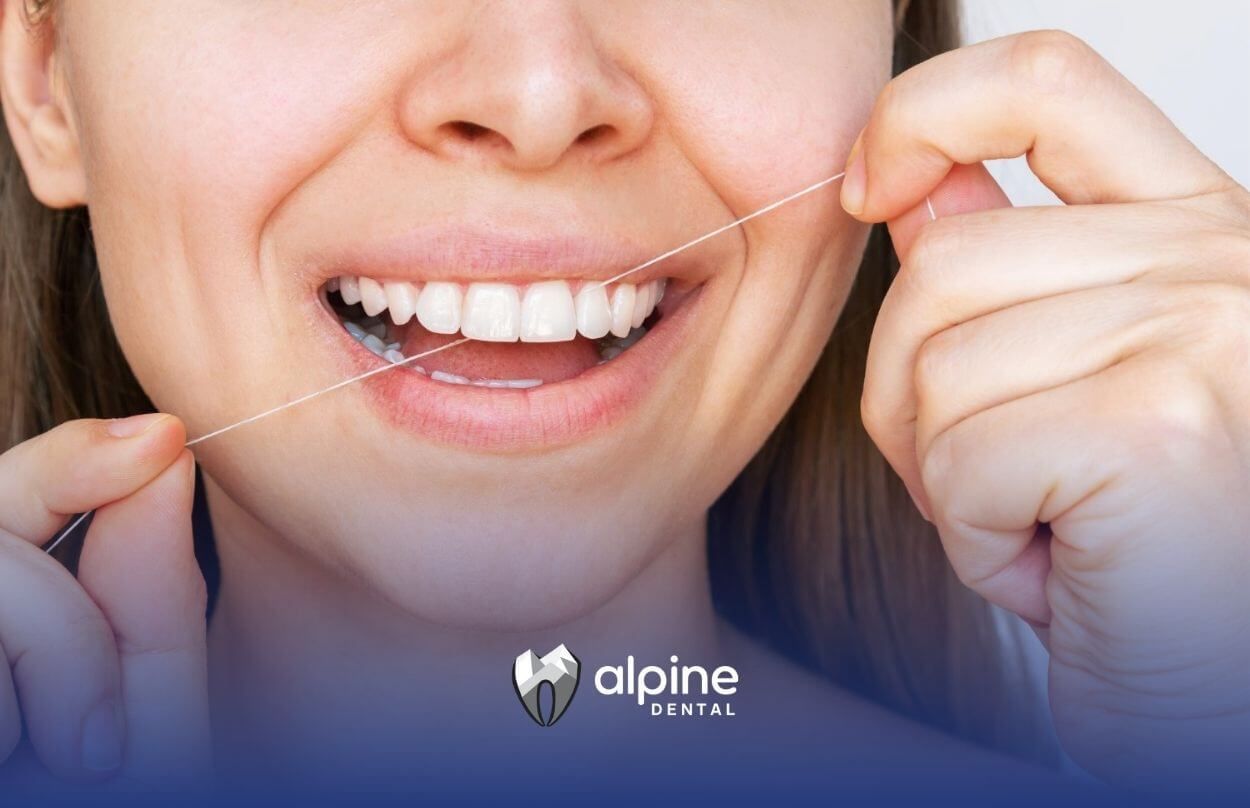Do Dentists Judge You? The Real Story Behind Dental Visits
If you’ve ever thought, “Do dentists judge you?” or worried, “My teeth are so bad I’m embarrassed to go to the dentist,” you’re not alone. Dental anxiety, especially the fear of being judged for having bad teeth or cavities, keeps many people from getting the care they need. But what’s the truth? Do dentists judge you for having cavities, missing teeth, or not flossing?
Let’s explore the facts, the psychology behind dental embarrassment, and how modern dental professionals—including the team at Alpine Dental—approach your care.
Understanding Dental Anxiety and Embarrassment
Why Are People Embarrassed to Go to the Dentist?
Dental embarrassment is one of the most common reasons people avoid dental care. Many worry that their dentist will judge them for neglect, poor hygiene, or the appearance of their teeth. The cycle often goes like this: anxiety or a past negative experience leads to skipping appointments, which worsens oral health, leading to even more embarrassment and avoidance.
Common worries include:
- “Do dentists judge you for having bad teeth?”
- “My teeth are the worst the dentist has seen.”
- “Will the dentist scold me for not flossing?”
- “I’m afraid they’ll laugh or be shocked by my mouth.”
This cycle of fear and embarrassment can be so strong that some people wait until they’re in pain before seeking help.
Do Dentists Judge You for Having Bad Teeth?
The Professional Perspective
The reality is, dental professionals see a wide range of oral health conditions every day. For them, treating cavities, gum disease, or even severe neglect is routine—not shocking. Dentists do not judge you for having bad teeth; they are trained to help, not criticize. Their focus is on improving your oral health, not on assigning blame.
Dentists understand that many factors—genetics, access to care, medical conditions, and life circumstances—affect oral health. They know that “bad teeth” are not a reflection of your character or worth. In fact, most are simply glad you’ve chosen to seek help, no matter how long it’s been since your last visit.
Do Dentists Judge You for Having Cavities or Not Flossing?
Cavities and Oral Hygiene: What Dentists Really Think
It’s natural to wonder, “Do dentists judge you for having cavities?” or “Do dentists judge you for not flossing?” The answer is no. While dentists can often tell if you haven’t flossed regularly—thanks to plaque and tartar build-up between teeth—their goal is to guide you, not shame you. They offer tips and techniques to help you improve your oral hygiene, not to make you feel bad.
Dentists are problem-solvers. When they see cavities or gum disease, they see a health issue to address, not a personal failing. Their priority is to help you get healthier, not to judge your past habits.
“My Teeth Are the Worst the Dentist Has Seen”—Is That Possible?
Many people fear that their case is the worst a dentist has ever seen. In reality, dental professionals treat severe cases regularly—from advanced decay to gum disease and missing teeth. It’s extremely unlikely that your situation will shock or disgust your dentist. Even if your teeth are in poor shape, dentists are trained to handle all levels of oral health, and their focus is always on helping, not judging.
The Vicious Cycle: Dental Fear, Avoidance, and Judgment
How Fear of Judgment Leads to Worse Oral Health
Avoiding the dentist due to embarrassment or fear of judgment can actually make oral health problems worse. This creates a cycle: embarrassment leads to avoidance, which leads to more severe dental issues, which leads to even greater embarrassment. Breaking this cycle starts with understanding that dental professionals are there to help, not to judge.
The Role of Empathy and Professionalism in Dentistry
Patient-Centered Care and Compassion
Modern dentistry is built on empathy, communication, and professionalism. Dentists are trained to listen, explain procedures clearly, and respect your concerns and fears. They create a supportive environment where your needs and comfort come first.
A professional dentist will:
- Take time to understand your unique situation and concerns.
- Explain treatment options and oral hygiene in an easy-to-understand way.
- Build trust through clear, compassionate communication.
- Offer personalized care, not a one-size-fits-all approach.
If you ever feel judged or uncomfortable, it’s important to find a dentist who prioritizes respect, empathy, and patient-centered care.
Breaking the Stigma: Why You Shouldn’t Be Embarrassed
You’re Not Alone
Millions of people worry, “My teeth are so bad I’m embarrassed to go to the dentist.” But dental issues are extremely common, and dentists have seen it all. Your oral health is not a reflection of your value, and seeking help is a sign of strength, not weakness.
Dentists Want to Help You Get Better
Dentists are motivated by a desire to help people improve their health and confidence. They’re not interested in making you feel guilty or ashamed. Their main concern is that you get the care you need to prevent pain, infection, and more serious health problems down the line.
What If You’ve Avoided the Dentist for Years?
If you haven’t seen a dentist in years, you might feel trapped by shame or anxiety. Remember, it’s never too late to start taking care of your oral health. Dentists are trained to help patients at every stage, and they appreciate your courage in making an appointment—no matter how long it’s been.
The Truth About Dental Judgment
Separating Facts from Common Misconceptions
Common Myths
Dentists will judge you for having bad teeth
This is a common fear, but dentists are healthcare professionals focused on solutions, not judgment.
Dentists scold or shame patients with cavities
Modern dental professionals are trained to provide supportive care, not criticism.
My teeth are the worst the dentist has seen
Dentists regularly treat a wide range of dental conditions - yours is unlikely to surprise them.
Dentists care more about appearance than health
Oral health is always the primary concern, with aesthetics as a secondary benefit.
You should avoid the dentist if you're embarrassed
Delaying dental visits typically leads to more complex problems down the road.
The Facts
Dentists see all types of cases and focus on helping, not judging
Their goal is to improve your oral health regardless of your starting point.
Dentists provide guidance and support, not criticism
They offer education to help you maintain better oral health going forward.
Dentists see severe cases regularly; your case is unlikely to shock them
They've treated countless patients and focus on solutions, not comparisons.
Dentists prioritize your health and comfort above all else
While aesthetics are important, they're secondary to your overall oral health.
Avoidance worsens oral health; dentists want to help you break the cycle
The earlier you seek treatment, the simpler and less expensive it tends to be.
How Alpine Dental Creates a Judgment-Free Experience
The Alpine Dental Difference
At Alpine Dental, we understand that dental anxiety and embarrassment are real. Our team believes that everyone deserves compassionate, non-judgmental care—no matter the state of your teeth. Here’s what makes us different:
- Empathy First: We listen to your concerns and never judge your oral health history. Our team is here to support you, not criticize.
- Personalized, Gentle Care: We tailor every treatment to your unique needs and comfort level, whether you’re dealing with cavities, gum disease, or haven’t seen a dentist in years.
- Clear Communication: We explain every step and answer all your questions, so you always know what to expect.
- Comprehensive Services: From routine cleanings to restorative and cosmetic dentistry, we offer everything you need to get your oral health back on track.
- Welcoming Environment: Our office is designed to put you at ease, with friendly staff and a relaxed atmosphere.
- No “Worst Case” Judgment: We’ve seen it all—and we’re here to help, not to keep score.
If you’re searching for a “dentist near me” who truly cares, Alpine Dental is ready to welcome you—no matter your dental history.
Conclusion: Take the First Step—You’ll Be Met with Compassion, Not Judgment
If you’ve ever wondered, “Do dentists judge you?” the answer is clear: dental professionals are focused on helping, not judging. No matter how long it’s been or what shape your teeth are in, making an appointment is the bravest and healthiest thing you can do.
Ready to break the cycle of dental anxiety? Call Alpine Dental and experience a dental visit focused on care, not criticism. Your healthiest, happiest smile starts with a single step.
Frequently Asked Questions (FAQs)
Will a dentist judge your teeth?
No, dentists do not judge your teeth. They are trained to treat all types of dental issues and focus on helping you improve your oral health, not on criticizing your past habits.
Do dentists judge if you have a lot of cavities?
Dentists do not judge you for having cavities. Their goal is to treat the problem and help you prevent future issues, not to make you feel bad about your oral health.
Do dentists judge you for not flossing?
While dentists can tell if you haven’t been flossing, their aim is to guide you with tips and support, not to judge or shame you.
What is the number one reason dentists get sued?
The most common reason dentists are sued is alleged failure to diagnose or treat dental disease properly, not because of patient embarrassment or judgment.
Can dentists be trusted?
Yes, dentists are healthcare professionals bound by ethics and professionalism. They are committed to providing quality, compassionate care and maintaining patient trust.
Sources:
- https://www.goodrx.com/conditions/dental-care/too-embarrassed-to-see-dentist
- https://pmc.ncbi.nlm.nih.gov/articles/PMC11225999/
- https://cdn.agilitycms.com/rcdso/pdf/practice-advisories/RCDSO_Practice_Advisory_Maintaining_Professional_Relationship1.pdf
- https://pmc.ncbi.nlm.nih.gov/articles/PMC5810625/
- https://www.mdpi.com/2304-6767/13/1/31
- https://europepmc.org/article/pmc/4021389




